Content
- 1 The advantages of perennial flowers
-
2 Types of flower beds
- 2.1 Modular
- 2.2 Mixborders
- 2.3 Rabatki
- 2.4 Tapeworms
- 2.5 Borders
- 2.6 Rockeries
- 2.7 Rock gardens
- 3 Creating a flower garden
Bright picturesque flowerbeds are decoration of any site. Each flower garden is beautiful in its own way. But if it is professionally designed, then no one can take their eyes off it. To extend the pleasure of admiring such a flower garden will allow the use of perennial plants when decorating it. Thus, without extra costs, it is possible to create an interesting element that will delight with its beauty for more than one season.

The advantages of perennial flowers
Perennial flowers for creating flower beds - ideal. So, for example, you do not have to annually plan the flower beds, as is the case when using annual plants. Of course, in addition to this, perennial flowers have many other advantages.
Firstly, perennials are chosen, most often, for their durability. This means that they do not require an annual transplant, they do not need to be re-sown for a long period of time.

Secondly, perennials are quite unpretentious. This explains the rather simple care, consisting in timely weeding and watering of plants. Also, they do not require regular feeding. In addition, many of this group of plants tolerate frost well without any special means of protection.
Thirdly, financially, the cost of perennials will be significantly less compared to using annual flowers.
Fourth, one cannot fail to mention the enormous variety of perennials. However, some of them have a long flowering time - a whole season. In certain plant species, flowering continues from early May until the onset of autumn frosts.

Types of flower beds
Using perennials as the basis, you can create an unimaginable number of diverse flower beds. They can vary not only in shape, but also in the shades of the plants used, their height, variety and even the shape of the inflorescences. All these criteria serve as the basis for the allocation of various types of flower beds. So, the following types of flower beds are distinguished.
Modular
The composition of such a flower bed consists not only of a group of plants, but is also complemented by other elements of landscape design. Such elements can be paths, decorative ponds, garden sculptures. The main thing is that the composition should be divided into repeating elements - modules.
Mixborders
A flower bed of this type is designed in free form. However, the general rule when creating a mixborder is to observe the multi-row of the flower garden. Due to this, it combines flowers of various varieties, sizes and shades.

Rabatki
Narrow rectangular flower beds located mainly along the paths of the fence. Plants in a flower garden of this type are planted in a checkerboard pattern or in parallel rows.
Tapeworms
Flowerbed with a single plant. Tapeworms focus on themselves, so you need to choose plants of an unusual shape or those that have bright inflorescences. It should also be borne in mind that it is better to place tapeworms in large areas. In this case, the plant will be well visible.

Borders
They are created for edging flower beds, lawns. Plants used to create borders are undersized, creeping. Unlike rabatki, when creating a border, several types of plants are allowed.
Rockeries
The composition of the flower beds of this type should combine plants and stones. When making a rockery, the emphasis is on stones, flowers serve only as their kind of frame.

Rock gardens
Such a composition imitates a mountainous terrain. Just like a rockery, a rock garden combines stones and flowers. However, here, unlike rockery, the most attention is paid to flowers.
Among such a variety of types of flower beds, everyone will be able to choose the one that will appeal to them. However, when choosing the type of flowerbed, you should also pay attention to the style and size of the garden in which it will be located.

Creating a flower garden
At the initial stage of creating a flower garden, you need to draw a diagram of a future flower bed. At this stage, the type of flowerbed is thought out, on the basis of which the optimal size and shape of the flower garden, its style are selected. Then you need to select the suitable plants and correctly arrange them - that is, create a floral arrangement. The location of plants depends on previously selected parameters: the type of flower bed, its size, shape.

It would be better if the scheme is done in color. This will allow even at the stage of designing the flowerbeds to notice and eliminate defects in the color combination, if any. In any case, the color scheme will demonstrate how the flowerbed should look live.
It should be noted that choosing the right plants can be quite problematic. It is necessary to take into account the height of the flowers, their shades, correlate the flowering period, choose plants with similar requirements for soil, lighting. Composing a flower bed with all these criteria in mind can take a lot of time. Therefore, at first, those who have not previously been engaged in the creation of flower beds, it is recommended to turn to ready-made schemes.
After the scheme is ready, you need to choose a place where the flower garden will be located. It must be borne in mind that this place should be sufficiently lit. You should also make sure that the flower garden will be clearly visible.

At the chosen place, the earth is dug, weeds, stones, other garbage are removed. Then the soil is prepared: organic and mineral fertilizers are applied, and drainage is done if necessary. The final step is to level the place where the flower bed will be located. In this case, the prepared flowerbed should be 10-15 centimeters above ground level.
When soil preparation work is carried out, plants are planted in the soil in accordance with the previously drawn up scheme. In order to make it easier to navigate in the circuit, it needs to be divided into squares. Do the same on the site of the future flowerbed. Thus, it will not be difficult to properly plant all the plants, as well as arrange other decorative elements.

-
 Why do I need a swing mechanism in an office chair
Why do I need a swing mechanism in an office chair
-
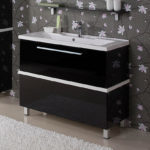 What cabinets are suitable for the bathroom and do not swell quickly
What cabinets are suitable for the bathroom and do not swell quickly
-
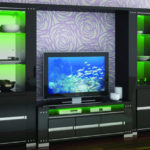 TV furniture, original solutions
TV furniture, original solutions
-
 How to choose furniture for an elderly person
How to choose furniture for an elderly person
-
 How to correctly arrange furniture in a small kitchen to use the whole space
How to correctly arrange furniture in a small kitchen to use the whole space
-
 The best models of air beds and cots
The best models of air beds and cots
-
 Eco-friendly kitchen furniture
Eco-friendly kitchen furniture
-
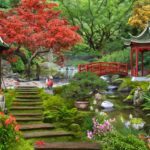 Why do celebrities choose Japanese-style garden design?
Why do celebrities choose Japanese-style garden design?
-
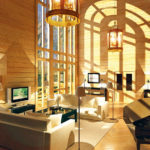 The pros and cons of natural and artificial lighting indoors
The pros and cons of natural and artificial lighting indoors
-
 All about the pros and cons of a modular kitchen
All about the pros and cons of a modular kitchen
-
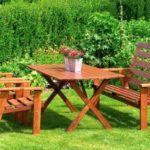 Why teak furniture lovers so much
Why teak furniture lovers so much
-
 How to avoid a mistake when creating a hallway lighting
How to avoid a mistake when creating a hallway lighting
New publications are published daily on our channel in Yandex. Zen
Go to Yandex. Zen


